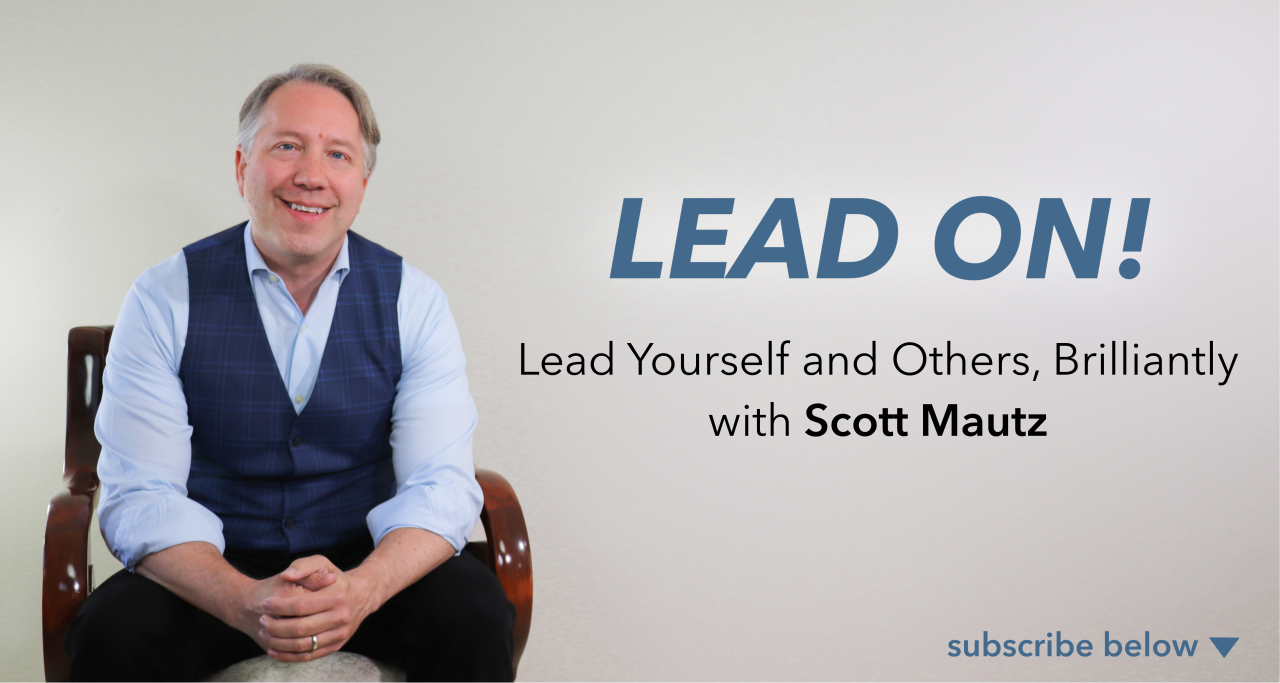
Issue #96: On the Best Advice I’ve Ever Heard, Getting Someone to Speak Up, and More
If you’d prefer, listen to this issue here. Don't want to miss an issue? Click the bell icon on my LinkedIn profile page to get notified when a new issue publishes.
INSIGHTS (on leadership/self-leadership)
Ever get a piece of advice that really stuck in your brain, that you found yourself drawing on repeatedly? (I’d love for you to share it, by the way!). Here’s a genius piece of advice I took on.
Things don’t have to be perfect to be wonderful.
Drink that in for a minute. I learned of it from a four-year old New York Times article, that offered this context:
Gail Dekker first heard her friend, a wedding coordinator, offer these words to young couples whose emotions were running high. But it works in all kinds of situations, including Ms. Dekker’s house hunt. “My initial reaction was that there was something wrong with every condo I saw. My friend reminded me: A place didn’t have to be perfect to be wonderful. She was right.”
Indeed, it’s not advice reserved solely for wedding planners or realtors. It applies to you. To me. Admittedly, there have been too many times when I wouldn’t allow myself to fully take in the joy of what something was, simply because I was fixated on what it wasn’t.
So, take my advice, and take this advice. It’s powerful.
IMPERFECTIONS (a mistake many make)
I was recently at the premiere for Ted Lasso, season 3 (in a Los Angeles theater):

As season three broadly opens this week, it’s the perfect time to talk about kindness (a part of Ted’s leadership DNA). When I say kindness, I mean paying compliments, giving praise and recognition, showing empathy and respect. Doing so increases well-being and self-esteem, reduces burnout and stress, and increases productivity and the sense of meaning derived from work. Research shows we’re actually even happier giving kindness than receiving it!
But we typically make the mistake of underestimating the power of kindness. In fact, research indicates the idea of approaching someone and saying something nice can trigger anxiety and discomfort because we assume people will feel uncomfortable/bothered by the compliment (when the opposite is true). And with so many working remotely now, it’s all too easy to bypass compliment giving in the Zoom-a-sphere.
So, here’s my question/challenge for you:
How will you specifically show kindness at work over the next week?
I’d love to hear from you.
IMPLEMENTATION (one research-backed strategy, tip, or tool)
Most teams have one – a smart, savvy person with worthwhile contributions that tends not to speak up very often. One of the biggest reasons people won’t speak up is fear of criticism from others – especially their boss. That’s where “the movie critic metaphor” comes in to help you encourage people to speak up. I’ll explain.
Albert Williams, a renowned film critic, once gave a speech on why critics of all kinds (film, theater, music) do what they do. It’s not because they’re mean spirited and enjoy tearing down other people’s work. Nor are they obsessed with saving you from spending your money on something not worth it. Williams explained:
“Critics believe the creators of art really want feedback, of any kind. They see their role as a teacher, and teachers challenge the material they’re discussing. They see themselves as reporters, boosters, and skeptics - all to create better art.”
Here’s the power in this. What if you saw criticism the same way – as coming from someone helping to create better art, in the form of a better version of you? What if your team saw it this way?
Before meetings where you want everyone’s input, use this metaphor and help them understand that if you offer criticism or pushback on the input, it’s all in your desire to create better art (like the film critic). You want to help them, and the idea, improve. Remind them that any criticism you offer is meant to feed them, not their insecurities.
******
If you know someone who'd like this publication, please share! To further grow your leadership/self-leadership skills, check out all my courses on LinkedIn Learning below:
And get my "Soundview 2021 Best Business Book" and "Bulk Books bestseller," Leading from the Middle: a Playbook for Managers to Influence Up, Down, and Across the Organization.
Corporate Real Estate Leader | Managing Director | CBRE Global Workplace Solutions |
1yThanks Scott for sharing this.
Teaching Professor @Kelley School of Business | Instructor @LinkedIn Learning | Co-Owner @Ethos Fitness
1yOn my bike on a Sunday afternoon. Just finished listening in to lead on. Love it. Keep them coming.🫶
Creating Impactful Change Through Inspiring Leadership | Empowering Teams to Reach their Full Potential
1yI have found that getting people to speak up is a real challenge in many traditional and hierarchy focused organizations. I focus on establishing psychological safety within teams by: 1. Ensuring vertical and cross-functional (horizontal) trust (this takes work EVERYDAY just to maintain). 2. Ensuring the team knows when it is a 'regular' team meeting where all voices regardless of hierarchy are equal, and when it is a 'authority or decision meeting' that way everyone is prepared and understands the expectations and intent of the outcome.